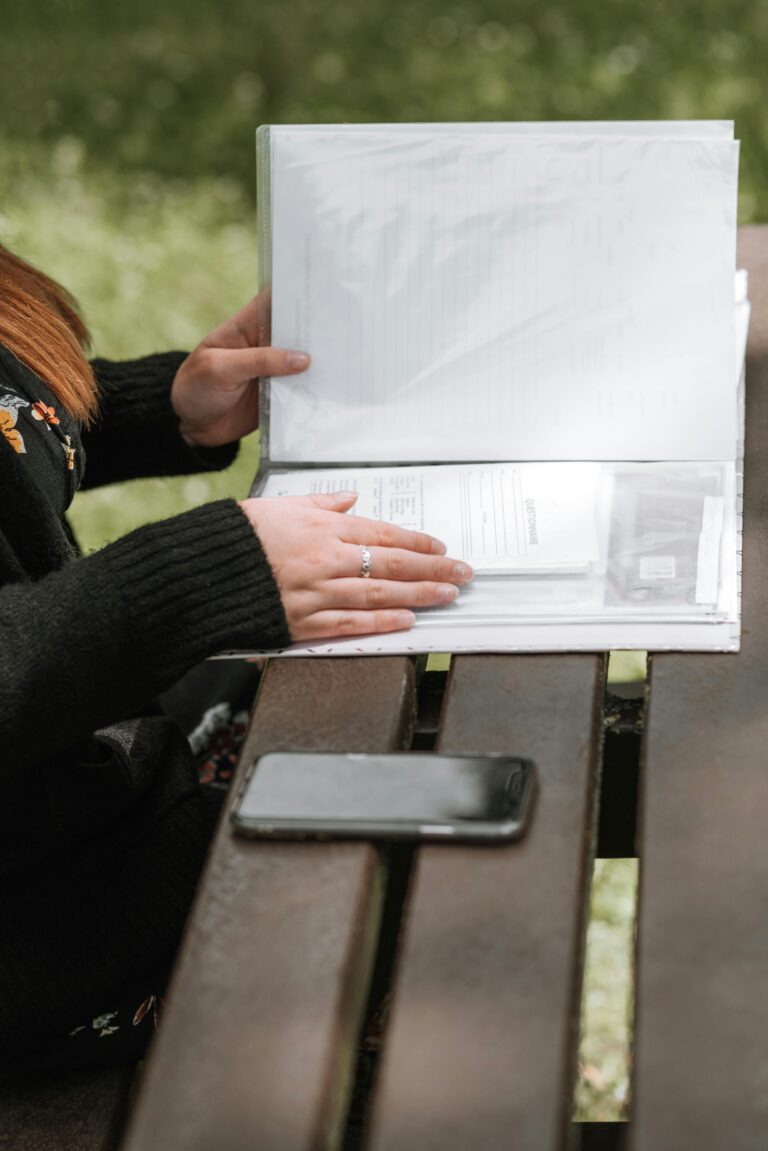University of redlands
Launching Wellness Series
A hyflex program with dedicated in-person sessions, which leadership has approved for the entire workforce to attend. This 6-week series A Community-based learning Project presented by URSA and the CMHC Graduate Students. The pilot aligns with the Surgeon General’s Framework for Workplace Mental Health and Well-being and the 7 Vital Conditions for Health and Well-being.

Thursday, October 30 @ 3:30 – 4:30
Topic: “Rooted Together: Cultivating Connection & Belonging at Work”
Facilitators: Dr. Alex Moreland
Location: Hornby 2
Brief Description:
Join us for a rejuvenating hour designed to strengthen our sense of connection, purpose, and belonging within the Redlands community. In this interactive workshop, participants will explore the 7 Vital Conditions for Health and Well-Being and discover how simple, intentional acts can create healthier, more inclusive workplace relationships. Through guided reflection and creative activity, we’ll uncover how belonging is built—not by chance, but through everyday choices that connect us to one another and to the shared wellbeing of our campus.
About the Presenter:
Dr. Alexandra Moreland, PhD, MA, LPCC is a behavioral health leader and educator committed to advancing equitable, integrated systems of care. She serves as Director of Behavioral Health at SAC Health and Chief Health & Wellbeing Officer at the Inland Empire Mental Health Training and Integration Center at the University of Redlands. Dr. Moreland earned her PhD in Systems, Families, and Couples from Loma Linda University and both her MA in Clinical Mental Health Counseling and BA in Psychology from the University of Redlands. Her work focuses on expanding access, strengthening the behavioral health workforce, and promoting whole-person wellbeing across clinical, academic, and community settings.

Thursday, November 6 @ 2:00 – 3:00 PM
Topic: “Healing While Working: Navigating Grief in the Workplace”
Facilitators: Gemma Lang
Location: Hornby 2
Brief Description:
Coping with grief while managing work responsibilities can be incredibly challenging. Together, we’ll explore how to honor your loss, stay grounded, and navigate your work life with compassion and resilience.
About the Presenter:
Gemma Lang is a second-year graduate student in the Clinical Mental Health Counseling (CMHC) program at the University of Redlands, training to become a Licensed Professional Clinical Counselor (LPCC). She is currently completing her internship as a PCC trainee at Citrus Counseling Services, where she works with underserved youth and trauma survivors in the community. In addition to her clinical work, Gemma serves as a Graduate Management Intern for the Volunteer Center in Community Service Learning at the University of Redlands, supporting undergraduate students in finding meaningful volunteer and service opportunities.

Tuesday November 11 @ 10:00 – 11:00 AM (not on Monday the 10th)
Topic: “Protect Your Peace: Creating Balance in the Workplace”
Facilitators: Dr. Dreana Holloway
Location:
Brief Description:
In today’s fast-paced work environment, maintaining emotional and mental well-being can feel like an uphill battle. This interactive workshop is designed to help professionals identify sources of workplace stress and develop practical strategies to safeguard their peace. Participants will explore techniques for setting healthy boundaries, managing time effectively, and cultivating resilience amidst competing demands. Through guided exercises, reflection activities, and real-world scenarios, attendees will learn how to navigate challenging interactions, reduce burnout, and foster a sense of balance that supports both personal and professional growth. Whether you are a team member, manager, or leader, this session offers actionable tools to create a healthier, more sustainable work experience while protecting your energy and maintaining focus. By the end of the workshop, participants will leave empowered to prioritize their well-being, enhance productivity, and contribute to a more harmonious workplace culture.
About the Presenter:
Dr. Dreana Holloway was born and raised in Charlotte, North Carolina. She earned her Bachelor’s degree in Interdisciplinary Studies with a concentration in Psychology from Winston-Salem State University in 2014. Following graduation, she served as an Exceptional Children (EC) Teacher Assistant in the Charlotte-Mecklenburg Schools District from 2014 to 2016. Dr. Holloway went on to earn her Master’s degree in School Counseling from Liberty University in 2016 and has since served as an elementary school counselor for eight years.
Continuing her passion for education and leadership, Dr. Holloway earned her Doctorate in Counselor Education and Supervision from Capella University in 2023. She currently serves as an Assistant Professor in the School Counseling Program at the University of Redlands and is the creator and supervisor of peer group supervision for counseling students through the Inland Empire Mental Health Training & Integration Center (MHTIC), helping students strengthen their self-efficacy and professional identity as counselors.
Dr. Holloway also serves as the Director of the Center for Educational Justice, leading initiatives that promote equity, inclusion, and systemic transformation within education. Dedicated to advancing the counseling profession, she collaborates internationally with colleagues in Belize, where she helped design a national school counselor certification program and launched a peer group supervision initiative to strengthen school counseling practices across the country.
Her ultimate mission is to empower future counselors and educational leaders by sharing her expertise, fostering collaboration, and advancing the school counseling profession on both local and global levels.

Tuesday, November 18 @ 10 AM
Topic: Boost Your Well-being: Understanding Emotional Intelligence in the Workplace
Facilitators: Gatwiri Gitonga
Location:
Brief Description:
In the demanding environment of higher education, the ability to understand and manage your own emotions and those of others is a critical component of personal well-being and professional success. This 60-minute session moves beyond lectures to focus on shared exploration and peer conversation.
We will leverage the collective wisdom in the room to explore the core components of Emotional Intelligence (EI)—how we understand ourselves and others—and discuss how these skills play out in your daily work life.
Through guided discussion and facilitated conversation, you will gain insight from fellow staff members on:
- How to identify and manage workplace stress before it leads to burnout.
- Strategies for improving communication and resolving friction with colleagues and students.
- Practical approaches to fostering a more positive and resilient mindset, drawn from real-world staff experiences.
This session will focus on connecting with your peers, reflecting on your experiences, and collectively discovering immediate, practical strategies that boost your workplace wellness and effectiveness.
About the Presenter:
Gatwiri Gitonga is a 2nd year graduate student in the School of Education’s Clinical Mental Health Counseling program, at the University of Redlands. She is pursuing the dual licensure program in LMFT & LPCC. She actively involved on campus as she also works as the Graduate Assistant for Transfer Student Success. Gatwiri holds a Bachelor’s degree in Psychology from the University of California, Riverside, and is passionate about mental health and wellness.

Week of December 1, 10 am
Topic: Identity in Action: Building Habits to Become Your Best Self
Facilitators: Lauren Wooster
Location:
Brief Description (for marketing or newsletter): Lasting change starts with who we believe we are, not just want we want to achieve. In this interactive workshop, we will explore James Clear’s concept of identity-based habits to help us achieve our personal and professional goals. We will discuss barriers to change and learn to shift our focus from ‘outcomes’ to ‘identity’ to cultivate motivation, consistency, and growth. Participants will learn the concept of identity-based habits, reflect on their own goals, create identity statements to support their goals, and explore actionable steps they can take to align daily actions with their desired sense of self.
About the Presenter: Lauren Wooster is a career coach, consultant, educator, occasional outdoor guide, and all-around people-champion. She holds her M.A. in Education, School Counseling and is a Gallup Strengths Certified Coach known for bringing clarity, curiosity, and empowerment to every team that she supports. Lauren is currently serving as the Interim Director of the Office of Career & Professional Development at the University of Redlands. Additionally, she is the co-host of Coaching Coast to Coast, a podcast dedicated to demystifying the coaching profession and supporting like-hearted leaders in maximizing their impact. You can learn more about Lauren and her work at her website: https://www.revelpeak.com/.

Wednesday, December 10th @ 11:00 – 12:00AM
Topic: Integrating Wellness: Building a Thriving Campus Culture
Facilitators: Ariana Cervantes-Borges
Location:
Brief Description: As the final session in the wellness series, this presentation brings together the key insights from previous discussions and explores how to meaningfully integrate wellbeing into our campus culture. We’ll focus on the 7 Vital Conditions for Wellbeing as a framework for fostering sustainable change among faculty and staff. The session will also include an interactive focus group component, inviting participants to share reflections, identify opportunities for growth, and co-create strategies to enhance collective wellbeing moving forward.
About the Presenter: Dr. Ariana Cervantes-Borges received her BA in Psychology from the University of California, Riverside and subsequent MA in School Counseling from the University of Redlands. Following this, Dr. Cervantes-Borges obtained an MA in Clinical Psychology and PhD in Psychology with a health concentration from the University of Texas at El Paso. Her research explores how cultural factors shape Latina sexual health behaviors. Her work centers on developing and testing interventions that promote STI testing among young adult Latinas through reducing stigma and strengthening self-efficacy and social support. Dr. Cervantes-Borges is passionate about advancing culturally grounded approaches to health promotion and equity.
Currently, she is working as a Research Associate at the University of Redlands in the Department of Counseling and Human Services. Her role here is to contribute to the advancement of the Inland Empire Mental Health Training and Integration Center (MHTIC). She aims to integrate mental health literacy and wellness education into counselor training, faculty development, and community-based professional development programs.
Core Objectives

Enhance MHTIC and URSA collaboration.

Advance Workforce Wellbeing.

Engage CMHC students in meaningful project-based learning
Homework
Homework will be given at the end of each session with instructions and reminder to use the journals provided. At the beginning of each session a few minutes will be used as a check-in to see who would be willing to share their experience with the homework and what reflections/insights may have resulted.
Week One
Find three Insta/FB/Tic Toc posts that represent “the struggle” for you. Whatever that looks like or means to you.
Week Two
What do you wish people knew or understood about “the struggle” (or your relationship with it) that you think would make things easier?
Week Three
What do you believe would be different if people knew about “the struggle”? How do you think others knowing would change things for you?
Week Four
How would the anticipated changes resulting from others knowing about “the struggle” influence your own behavior, motivation, sense of self, and relationship with others?
Week Five
What are you willing to do in the next week to a) open up to someone you trust about “the struggle and b) begin, “acting as if”.
Reference: Clear, J. (2018). Atomic habits: An easy & proven way to build good habits & break bad ones. Avery.
Follow up reading: https://jamesclear.com/identity-based-habits
Activity: Walk a labyrinth to reflect on what you want to achieve. Create an identity statement to accompany your goal.
University of Redlands Labyrinth: https://www.redlands.edu/bulldog-bites/2025/walking-the-path-of-reflection
Worldwide Labyrinth Locator: https://labyrinthlocator.org/world-wide-labyrinth-map/
Daily: Ask yourself what someone who holds your spoken identity would do to achieve your goal. Act on it one step at a time.
Week Six
Process experience, what was learned?
Thank you for participating in our 6-week Wellness Series for Faculty and Staff. As part of this initiative, we are asking all participants to complete a short pre- and post-series survey. These surveys will help us better understand how the workshops impact overall wellbeing and identify areas where we can continue to support you and our campus community.
Purpose of the Survey
The survey is designed to:
Assess changes in wellness and wellbeing after attending the workshops.
Identify which aspects of the 7 Vital Conditions for Wellbeing (e.g., belonging, basic needs, learning, etc.) participants feel most supported in.
Gather feedback on what additional wellness resources or topics you’d like to see in the future.
When to Complete the Survey
Before the series begins: Please complete the Pre-Survey to share your current perceptions of wellness and any areas you hope to improve.
After the final session: Please complete the Post-Survey to reflect on any changes or insights gained during the series.
How to Complete It
Each survey takes about 5–10 minutes to complete.
Your responses are confidential and will be reported in summary form only.
Please use the link or code to complete the pretest and posttest surveys so we can match pre- and post-responses for each of the wellness series topics anonymously.
Your input matters!
By completing both surveys, you’re helping us improve future wellness initiatives and ensure that our campus environment supports the 7 Vital Conditions for health and thriving.
